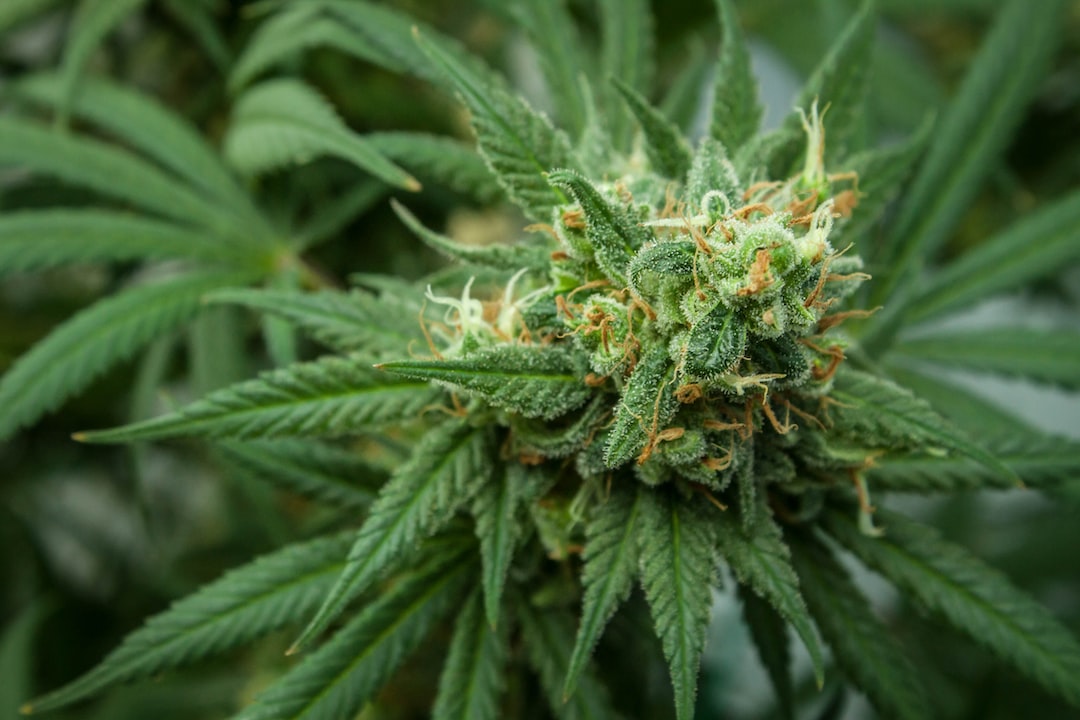The Crucial Role of Cannabis in Modern Medicine

The subject of cannabis tends to elicit varied reactions with critics and proponents alike presenting fervid viewpoints. Predominantly known for its recreational use, the historical utilization of cannabis as a medicinal avenue dates back centuries. Nevertheless, in the contemporary world, scientific research aimed at comprehending the medicinal potential of cannabis has seen a significant surge. The progress made in this field is already demonstrating an expansive range of benefits, from the treatment of various diseases to pain relief. This article shall delve into the vital role held by cannabis within the medical sector.
The Therapeutic Function of Cannabis in Healthcare
Admittedly, there is a stark contrast between recreational cannabis use and its medicinal applications in treating diseases or mitigating symptoms. The term 'medical cannabis' pertains to specific species of Cannabis sativa that possess medicinal properties. Among the myriad of compounds contained in these plants, cannabidiols or CBD, and delta-9-tetrahydrocannabinol, THC, are the most widely recognized and researched.
These components, specifically CBD, have been found to interact with the body's natural endocannabinoid system, which plays a crucial role in maintaining body homeostasis. This implies that CBD could be essential in regulating various physiological functions - including pain, mood, appetite, and sleep - thus proving valuable in the treatment of ailments associated with these functions.
Pioneering Epilepsy Treatment with Cannabis
The medical potential of cannabis, specifically concerning its effectiveness as a therapeutic agent for epilepsy, has been examined in numerous studies. This extensive exploration has culminated in the FDA approval of Epidiolex. This cannabis-based medication provides hope and relief for epilepsy patients through a once unimaginable solution.
The effects of Epidiolex are nothing short of phenomenal; Clinical trials noted a drop in seizures of up to 41.9% amongst those who were administered daily doses of this CBD medication. Additional studies have also shown that cannabis could play a crucial role in treating childhood epilepsy, particularly among those who have failed to respond to traditional therapies. The potential role of cannabis in managing this condition holds great promise and demands meticulous research to harness its full potential.
The Promise of Cannabis in managing Parkinson’s Disease
The application of cannabis as a treatment method for Parkinson's disease primarily focuses on symptom relief as a permanent cure for the ailment remains elusive. Cannabis has proven particularly adept at reducing symptom severity in Parkinson’s patients, including Bradykinesia, Stiffness, Tremors, and Rigidity.
Aside from symptomatic relief, research also indicates that cannabis could potentially slow the progression of Parkinson's disease. This notion stems from the inherent neuroprotective properties of cannabinoids manifest as a result of their interaction with CB1 and CB2 receptors. However, the extent to which cannabis can slow the progression of this disease remains a subject of ongoing research.
The Intricacies of Cannabis Effect
The copious array of compounds found in cannabis, most notably the cannabinoids, engage with the human body's cannabinoid receptors. A closer scrutiny of cannabis's impact on a Parkinson's patient elucidates the role of two key receptors - the Cannabinoid receptor type 1 or CB1, and the Cannabinoid receptor type 2 or CB2.
Careful observations reveal a deficit of CB1 receptors in Parkinson's patients compared to non-affected individuals. However, the consumption of cannabis causes a surge in CB1 receptors within the brain, substantially alleviating certain symptoms, primarily tremors. Coincidingly, the improvement of dyskinesia was observed with an increase in CB1 receptors.
Contrarily, CB2 receptors, mainly located in the immune system, are believed to play a role in cannabis's potential capability to reduce inflammation, a condition commonly linked with Parkinson's disease. While this is a working hypothesis, in-depth clinical research is required to validate these findings to ascertain the impact of cannabis on Parkinson's disease.
Aiding Pain Management with Cannabis
The potential of medical cannabis in pain management is another area witnessing increased attention. Active compounds in cannabis can inhibit the release of 5-hydroxytryptamine and glutamate, and seem to affect dopaminergic functionality. A significant breakthrough in this respect was the discovery of cannabinoid receptors, which are responsive to cannabinoids found in cannabis plants.
Crucially, medical cannabis has the potential to provide effective pain relief in patients who do not respond to traditional opioid-based pain relievers. This homeostatic role of cannabis places it at the forefront of next-generation pain management strategies, vital for chronic pain patients seeking safer, more effective treatment alternatives.
Expanding the Medicinal Applications of Cannabis
Cannabis's known medical benefits are far from exhaustive and continue to be explored. Research suggests that medical cannabis may help improve symptoms related to Chronic Disease, glaucoma, multiple sclerosis, and conditions causing muscle spasms. Additionally, emerging evidence points to cannabis's aiding role in treatments provided to HIV patients.
Among the myriad of potential uses for medical cannabis is its role in pain management for cancer patients. The disease itself, coupled with often harsh treatments like chemotherapy, can lead to severe and at times debilitating pain. Studies have shown that medical cannabis could serve as an effective pain management strategy in this respect while also managing other cancer-related symptoms such as nausea and loss of appetite.
Cannabis Therapy for Skin Conditions
While in-depth studies on cannabis usually focus on internal consumption, recently, studies concerning the external benefits of cannabis application, more specifically for the skin, have made significant strides. This shift in focus has resulted in a new range of skincare products containing cannabis compounds catering to a wide range of skincare needs.
As explained by Leafly, these skincare products’ active compounds bind to the CB2 receptors located throughout the human body. These phytocannabinoids in cannabis activate the CB2 receptors but do not produce the "high" traditionally associated with cannabis. Therefore, these products can help in tackling everyday skin issues as complicated as reducing the appearance of fine lines and wrinkles or as simple as taming acne outbursts - free of any worry about the intoxicating effects.
The Rising Trend of CBD Oil Usage
Only a few years back, the common perception around CBD oil was largely defined by skepticism and disapproval. Fast forward to the present, it has emerged as a popular natural remedy in the medical realm. Derived chiefly from hemp plants, the THC content in CBD oil is too insignificant to induce a "high", making it a legal, widely available alternative across numerous outlets, ranging from pharmacies to local supermarkets.
A recent publication disclosed that about 40% of U.S adults between 18 and 29 years of age have used CBD oil at least once. Among these users, 50% reported using CBD oil regularly to aid their daily life. Although the usage statistics were highest in this age group, a substantial number of older people also seem to be availing CBD oil's benefits. About 16% of adults between 30 and 49 years consistently use CBD oil, while 32% have used CBD oil at some point.
New Insights into CBD Oil Usage
An array of studies conducted on CBD oil usage, benefits, and safety presents a comprehensive understanding of CBD oil's rising popularity and its many benefits.
In one study, researchers assessed the safety profile of CBD oil to determine its long-term usage effects. The study confirmed CBD oil's effectiveness in long-term pain management, while noting mild side-effects, far less severe than the adverse events associated with long-term pharmaceutical drugs usage.
Another study reviewed CBD oil's potential benefits, particularly among patients with sleep and anxiety disorders. The study confirmed CBD oil's effectiveness in improving sleep and reducing anxiety symptoms. Remarkably, the use of CBD oil was also linked to overall health and wellbeing enhancement, with many users reporting improved quality of life.
The Untold Side-Effects Of Medical Cannabis
The promising role of medical cannabis as a potential therapeutic agent or a remedy for various diseases can still come with certain undesirable side effects. Amongst the most commonly cited side effects are sleepiness, slower reaction times, difficulty concentrating, increase in appetite, and potential interaction with other medications. Careful monitoring of effects and interactions is recommended when adding medical cannabis to a treatment plan.
Conclusion
While cannabis is often traditionally associated with recreation and a "high" feeling, medical cannabis is an entirely different page in the same book. The therapeutic potential of medical cannabis, shown in reducing pain, alleviating the impact of specific diseases, and improving seizure management, cannot be overlooked. However, it's crucial to understand the federal laws related to medical cannabis usage to ensure proper and legal use.
References
https://www.ncbi.nlm.nih.gov/pmc/articles/PMC6326553/
https://www.ncbi.nlm.nih.gov/pmc/articles/PMC5569602/
https://www.epilepsy.com/treatment/alternative-therapies/medical-marijuana
Want content like this?
Hire a vetted writer on Draft
Get Started
Other samples

Eco-Friendly Product Email Campaign
Explore EcoLiving's Earth Day sale for high-quality, eco-friendly products that blend style and sustainability. See why our customers love our reusable shopping bags, biodegradable cleaning products, and bamboo kitchenware.

Online Course Email Campaign
Unlock your digital marketing potential with SkillUp's transformative and comprehensive course. Act now for a limited-time 20% discount. Lead the digital evolution!

FinManage Email Campaign
Explore our new feature for instant financial reporting, offering a mobile, efficient solution for your business finances. Dive in and experience the future of financial management.
